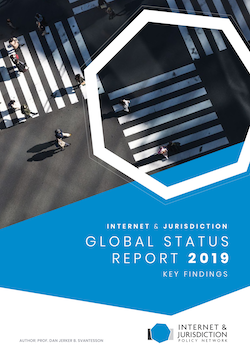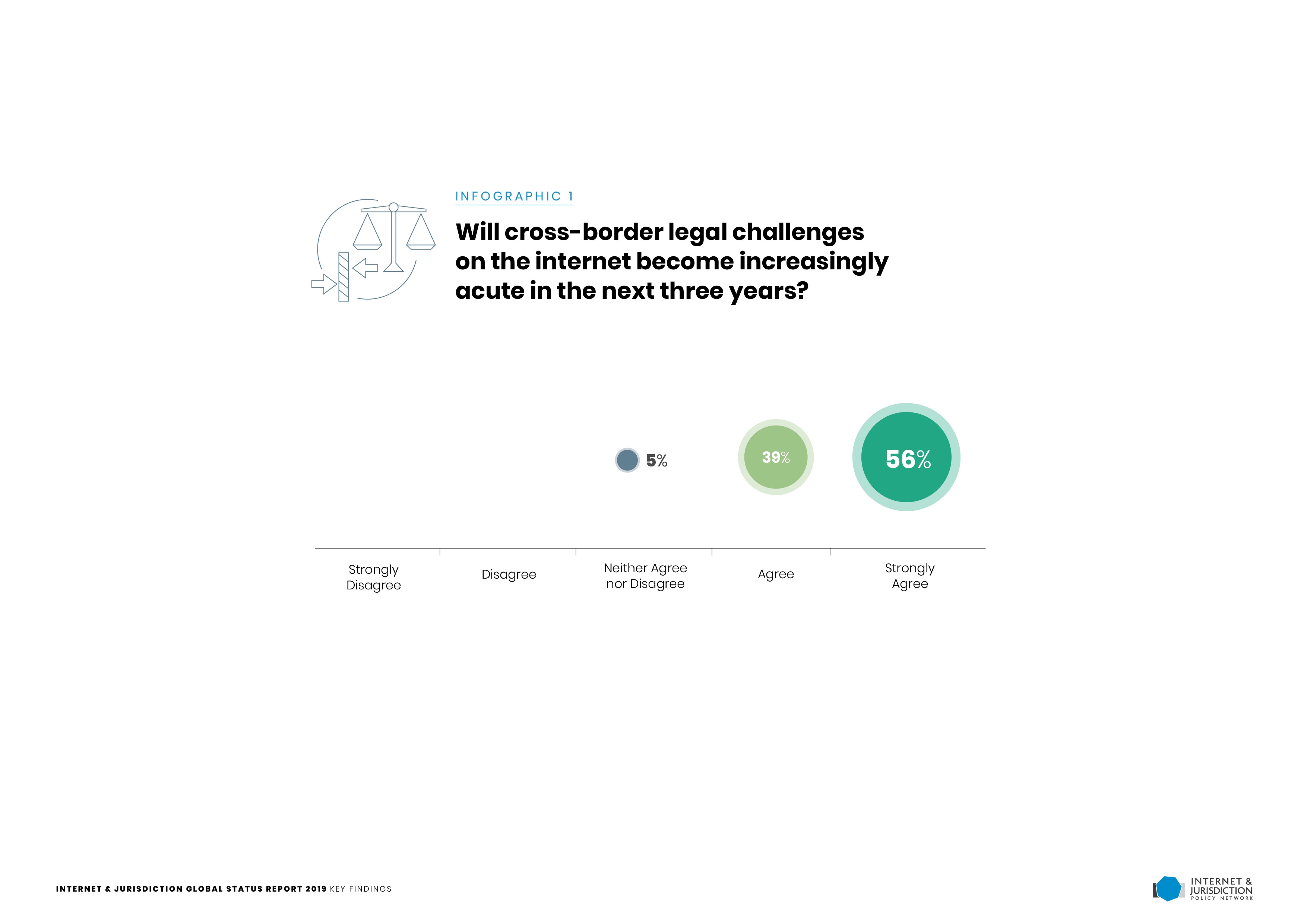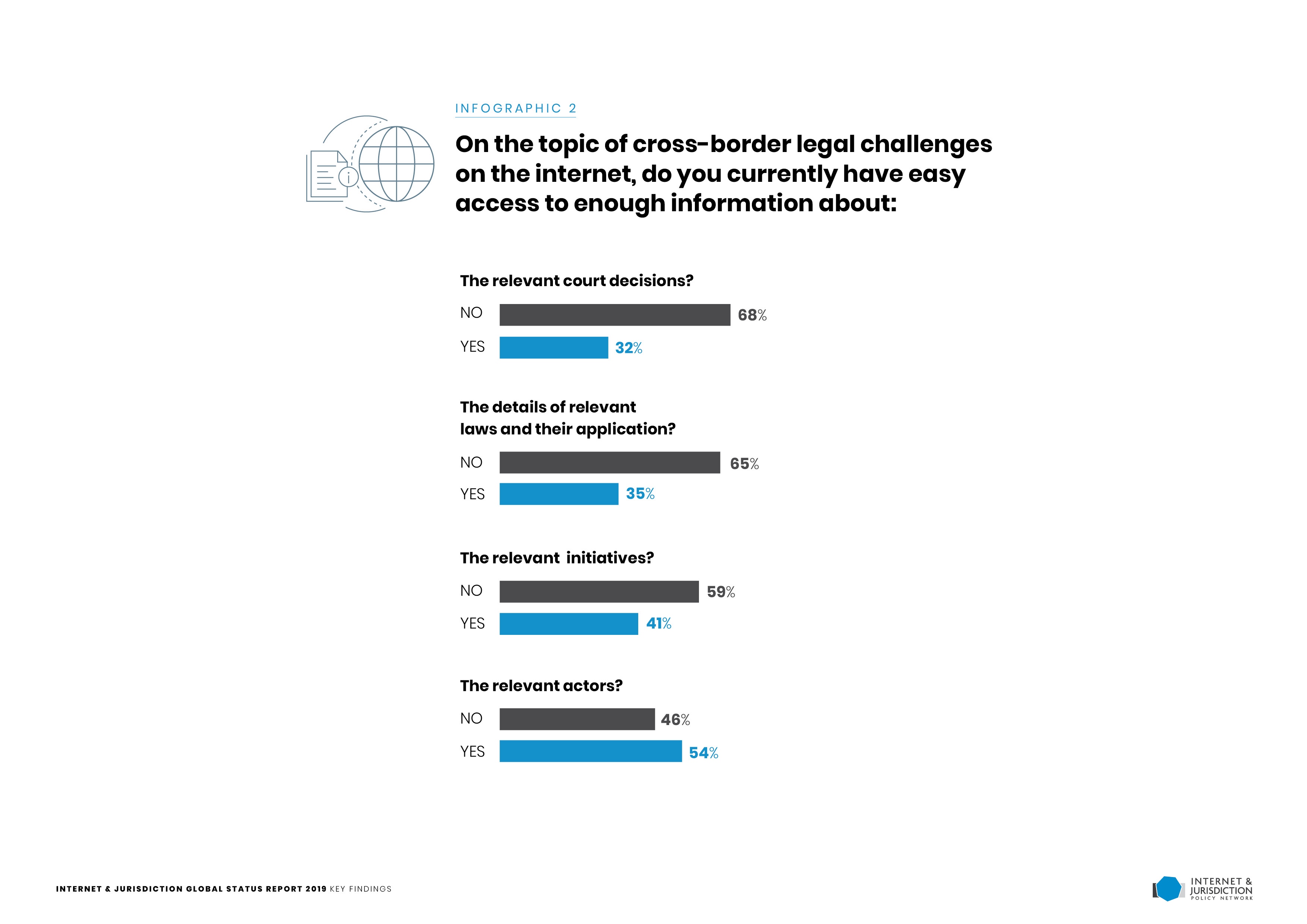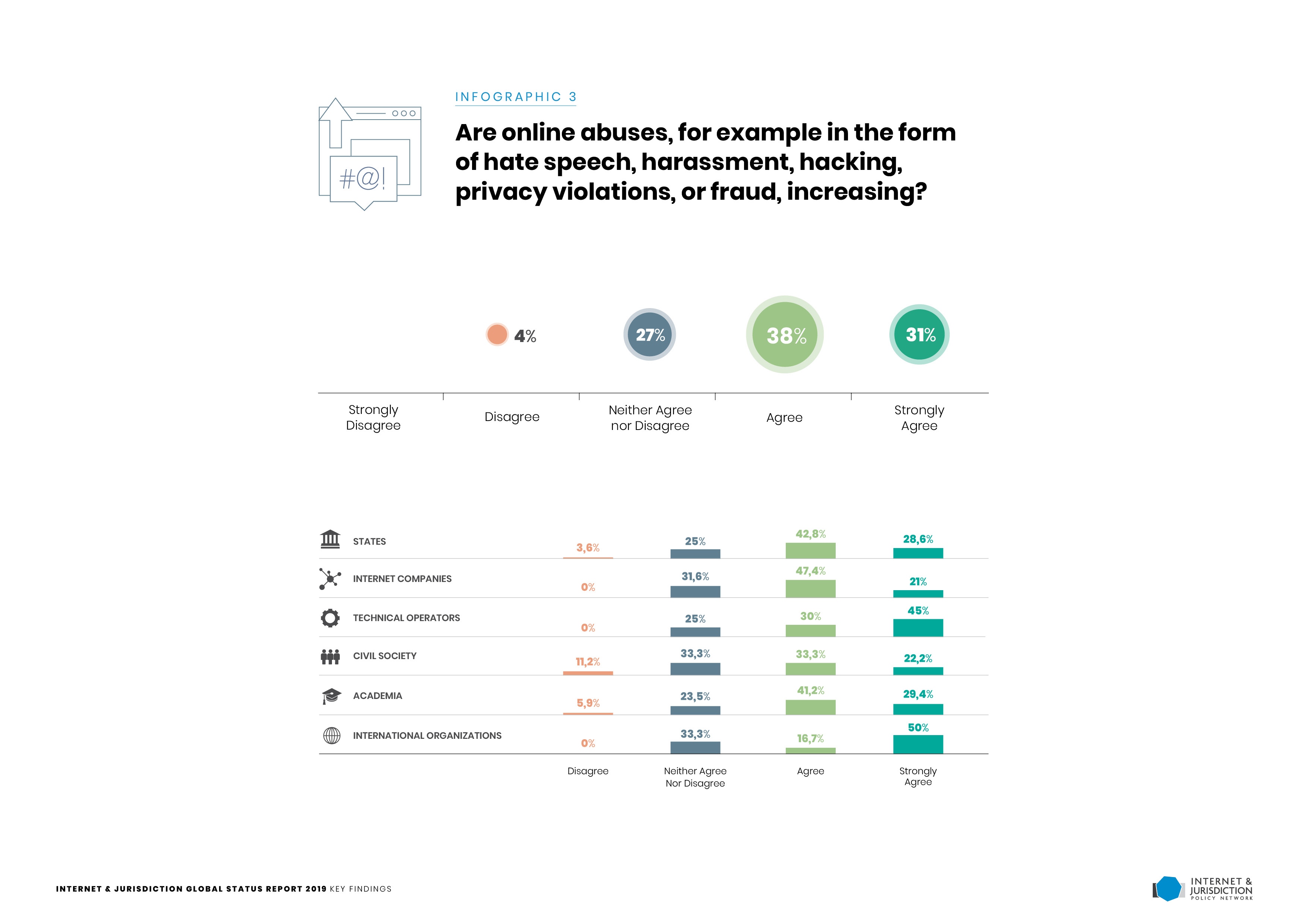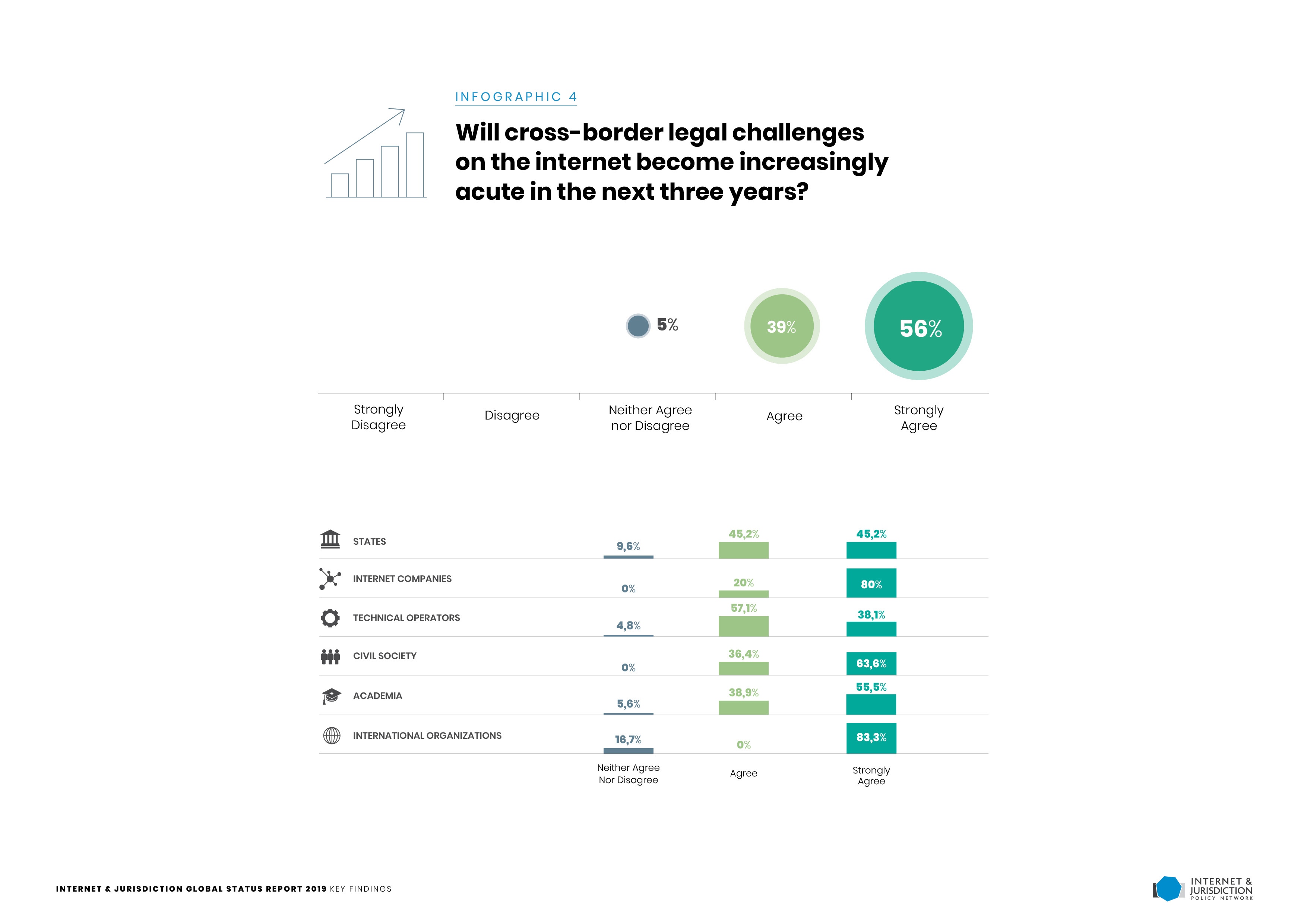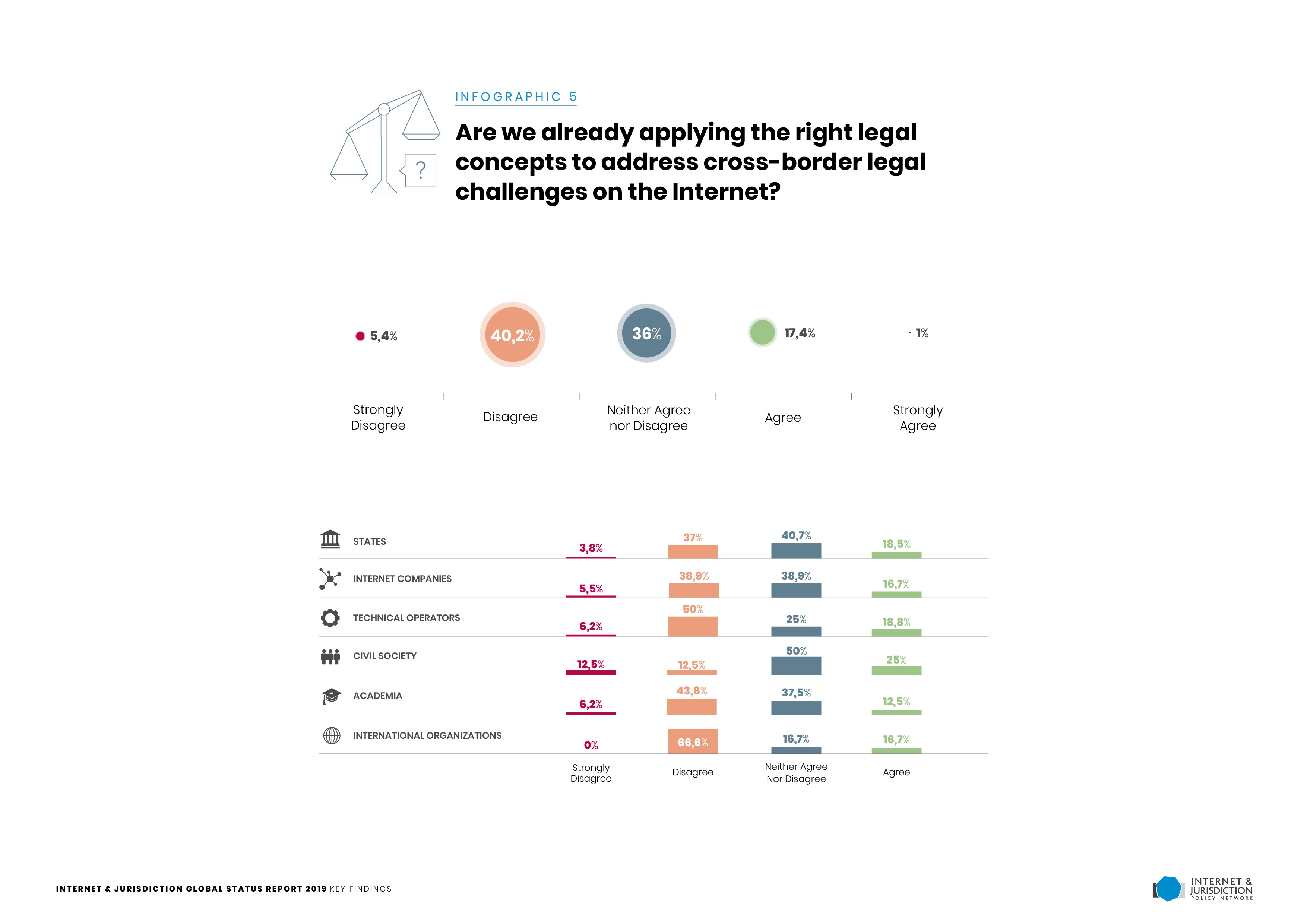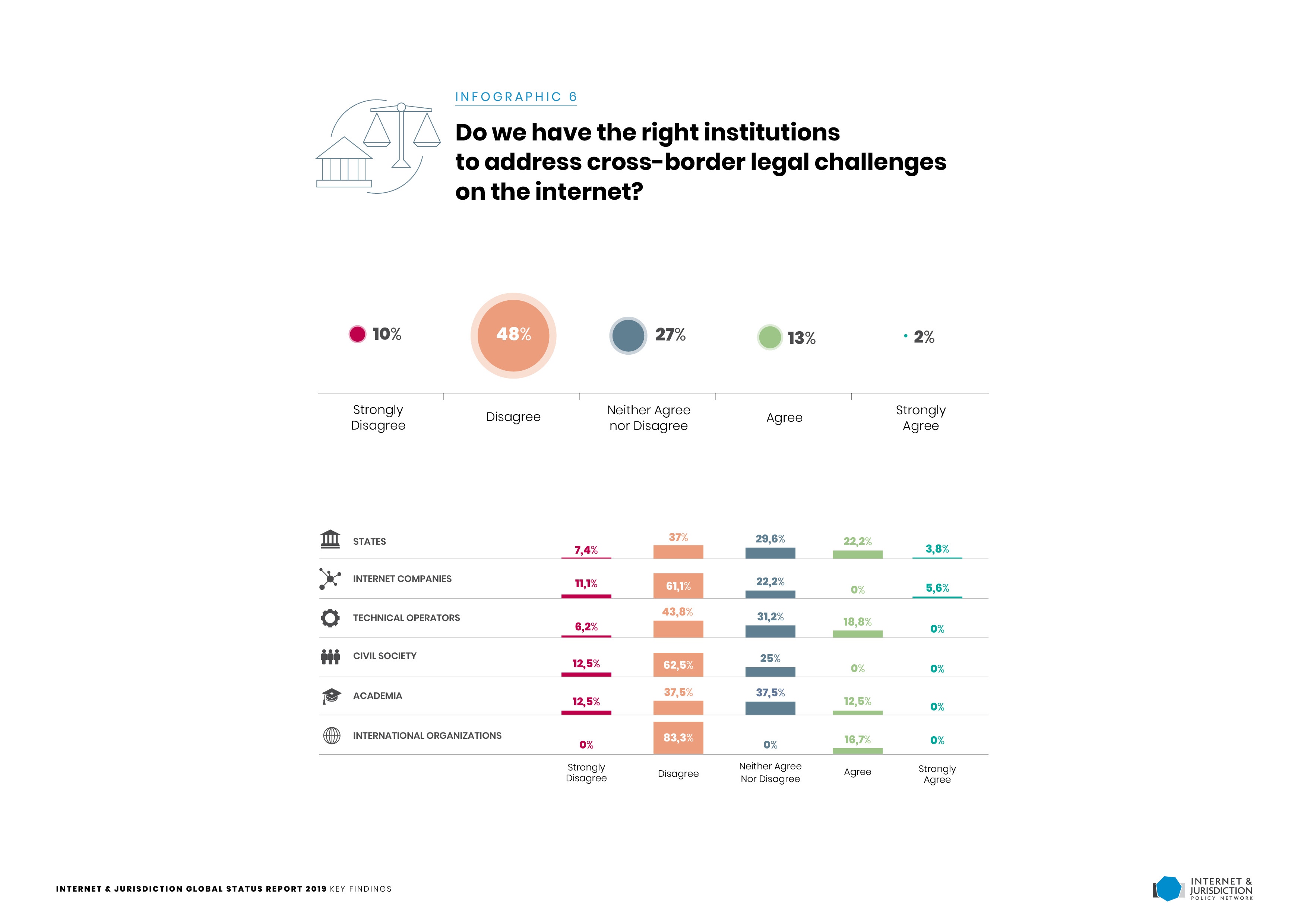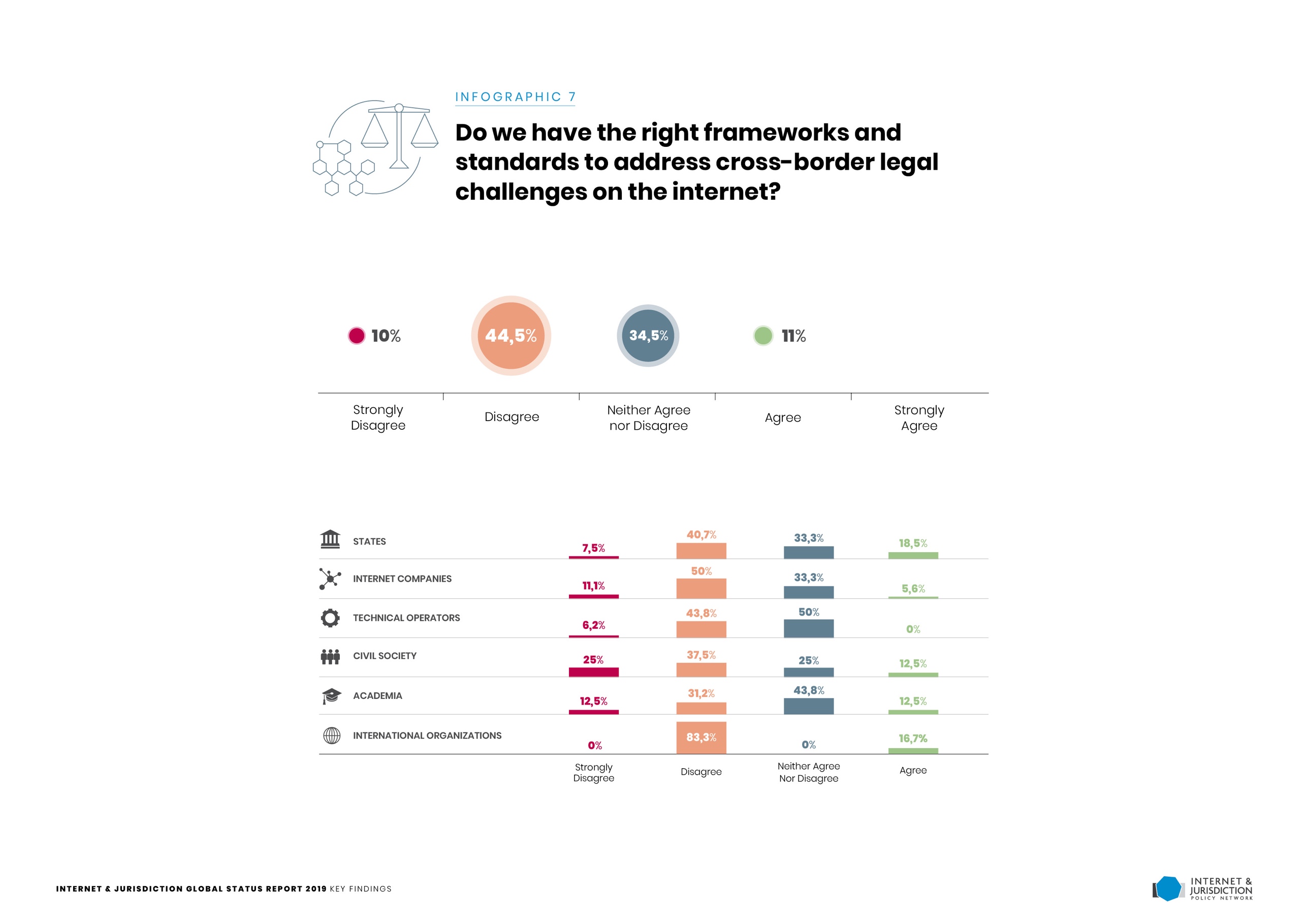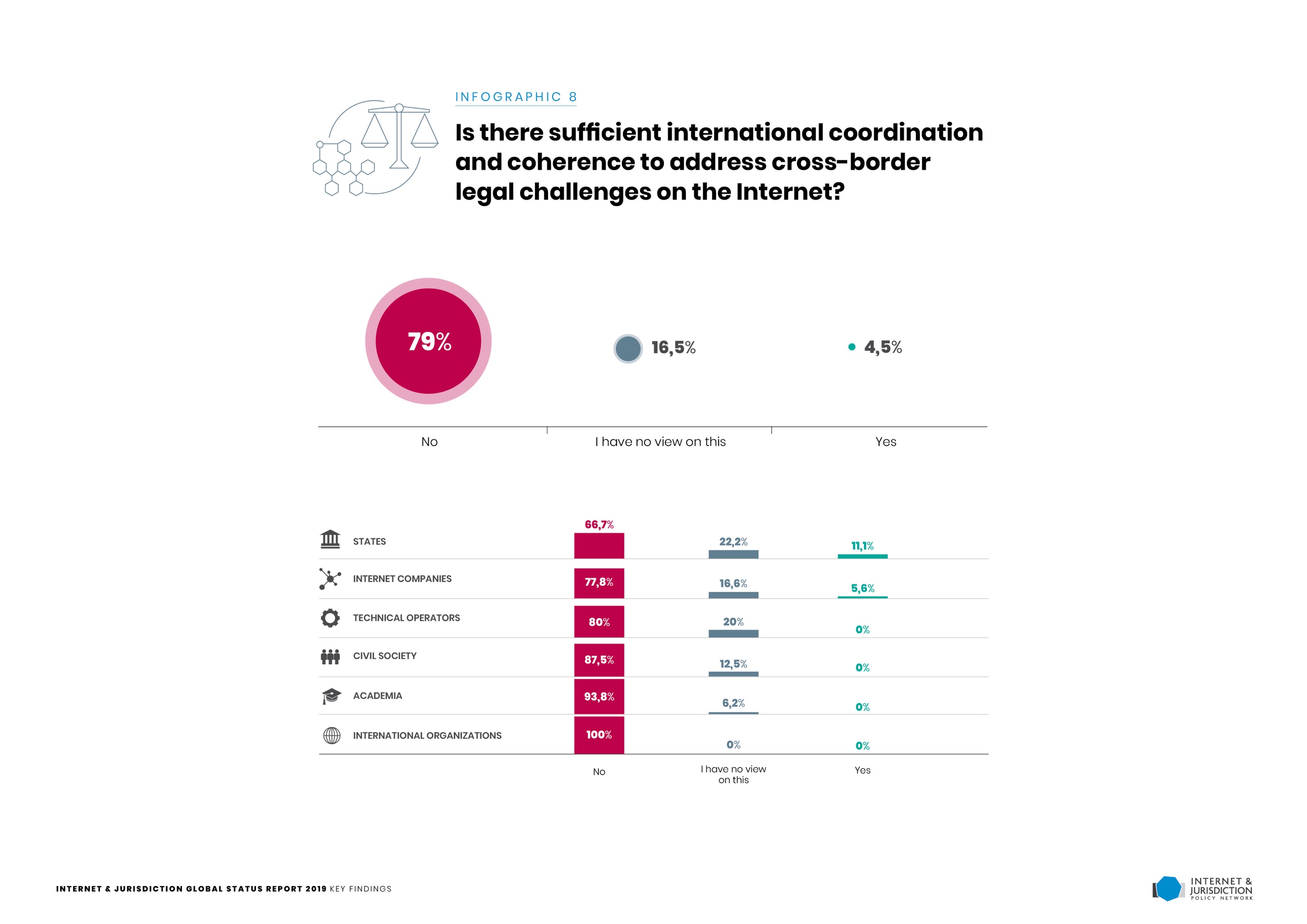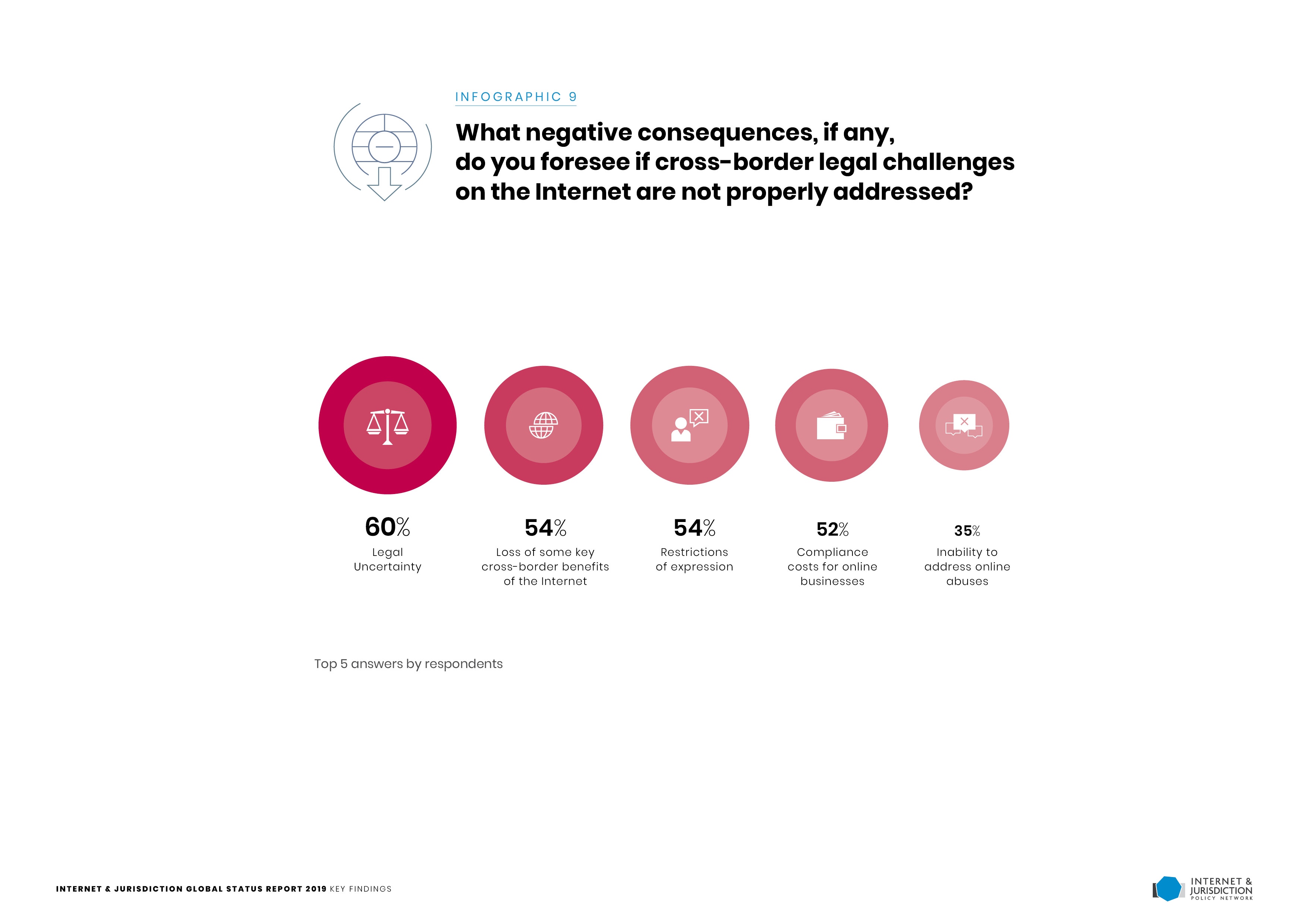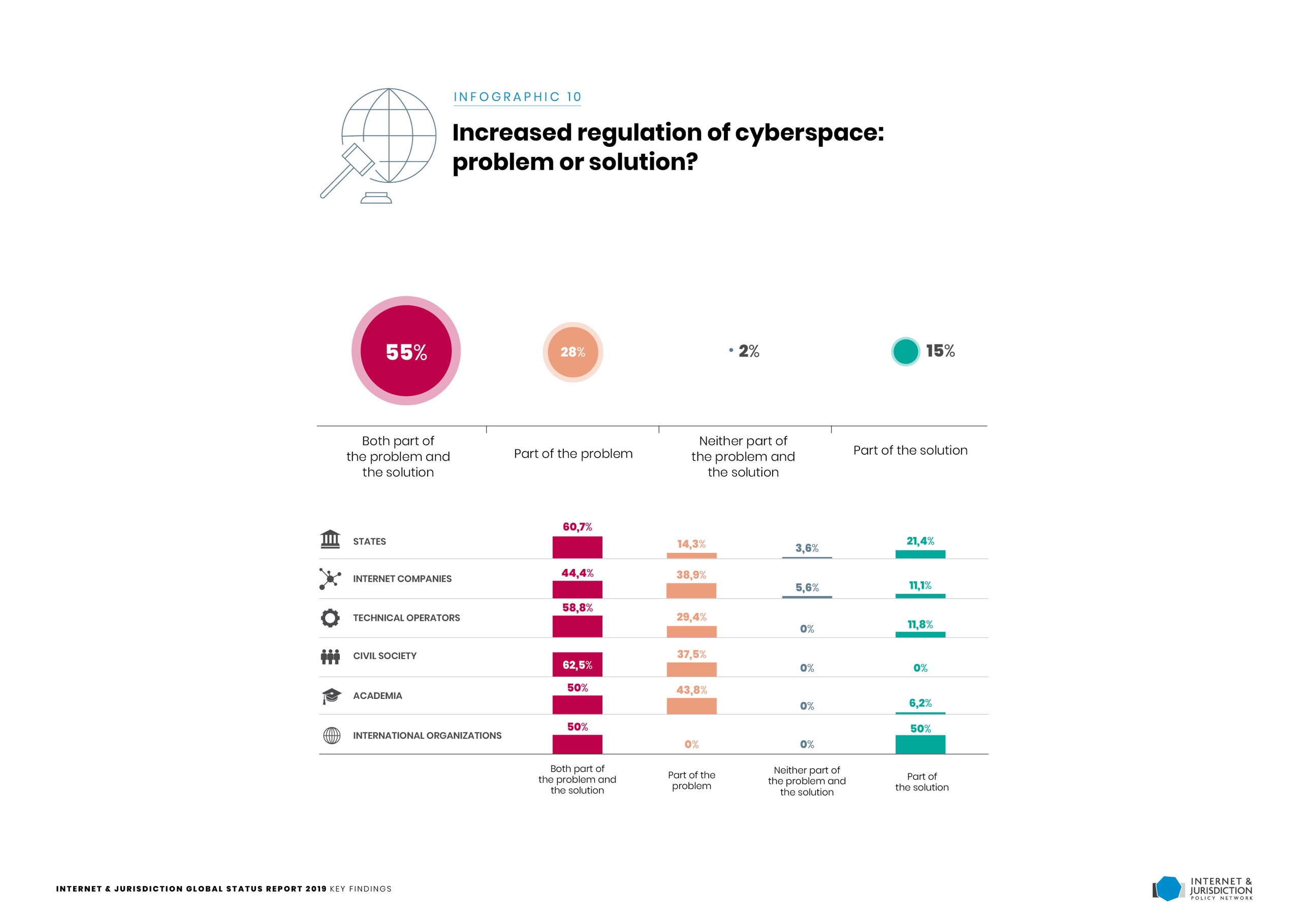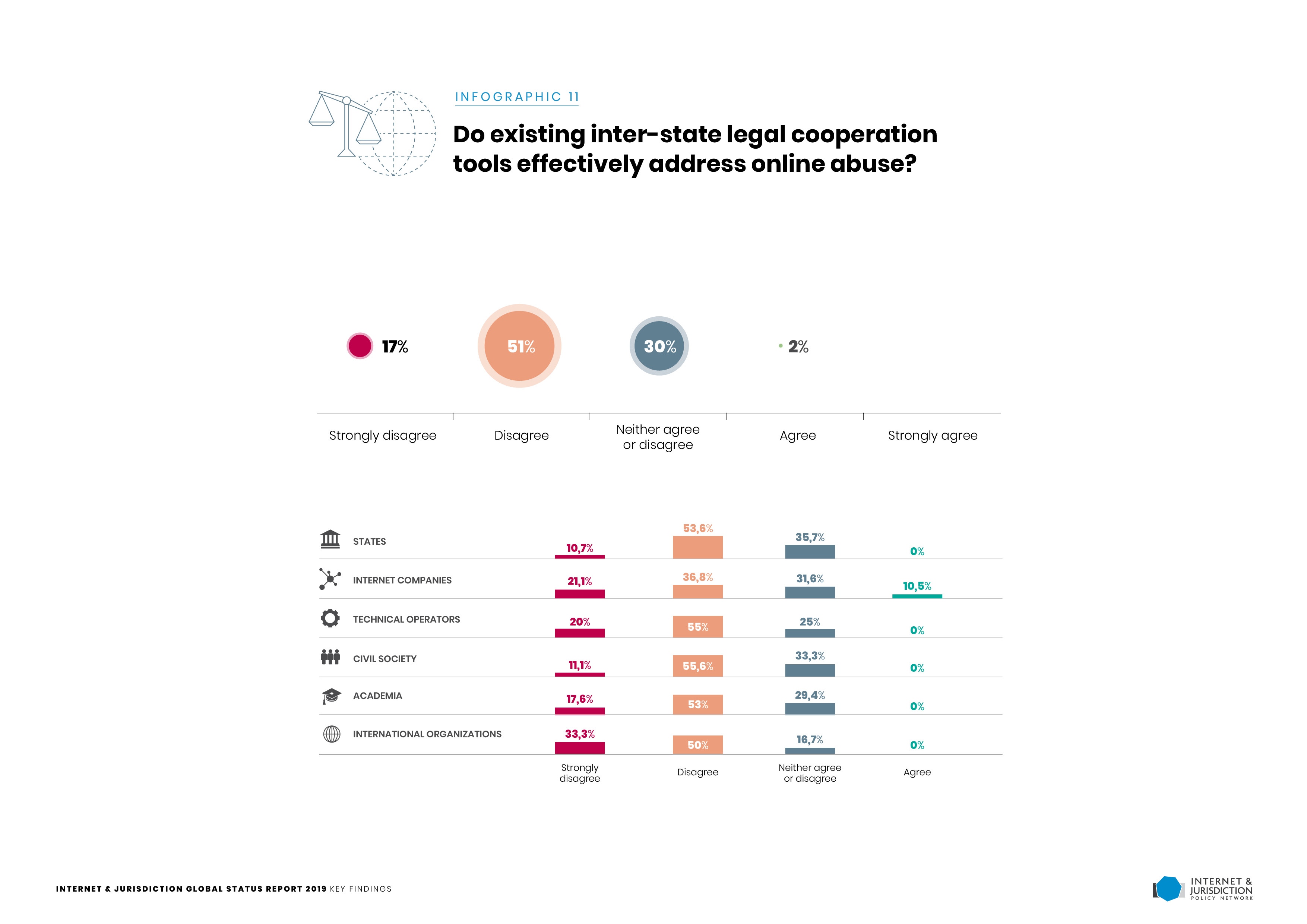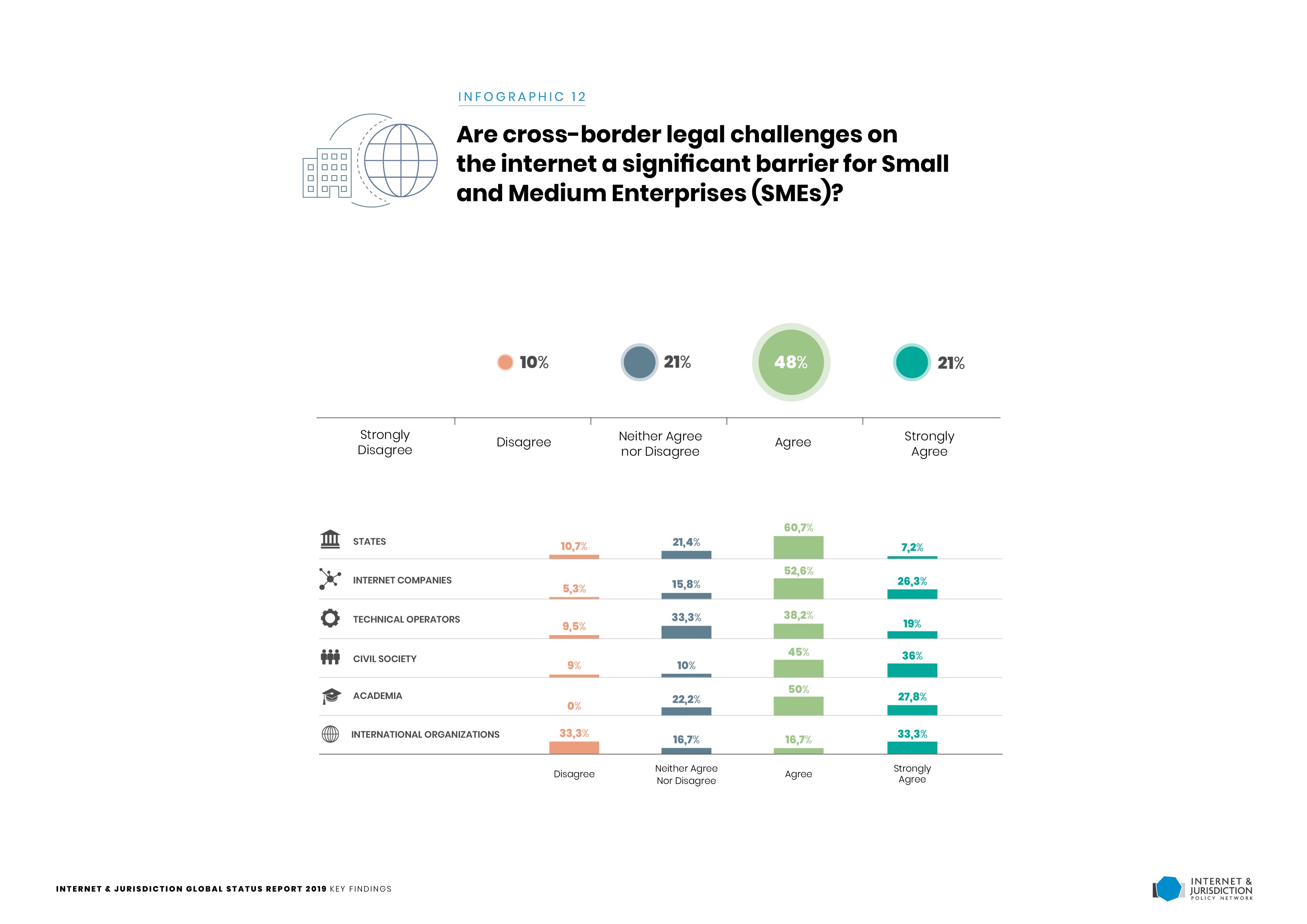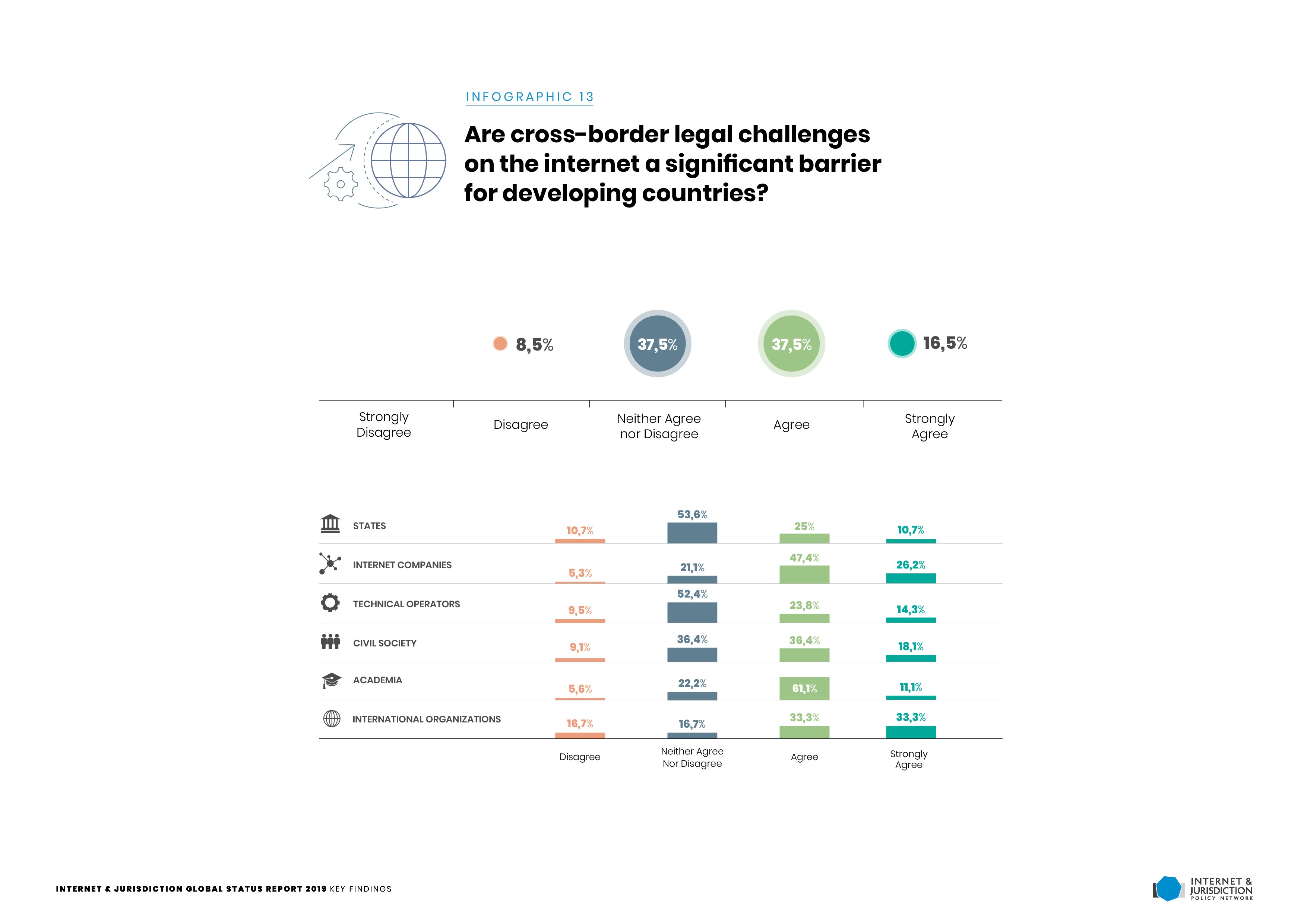On the occasion of the 3rd Global Conference of the Internet & Jurisdiction Policy Network, the key findings of the world’s first Internet & Jurisdiction Global Status Report have been presented by the Secretariat. The Conference took place on June 3-5, 2019, in Berlin, Germany.
The important publication responds to the urgent call of over 200 senior-level stakeholders from 40 countries at the 2nd Global Conference of the Internet & Jurisdiction Policy Network in Ottawa in February 2018.
Download the document by clicking on the icon below:
79 Percent of all participating stakeholders say that there is insufficient international coordination and coherence to address cross-border legal challenges on the Internet.
Enabling evidence-based policy innovation, the Report provides all stakeholders with the necessary information to develop frameworks and policy standards for the digital society and economy. It gives a comprehensive and regionally balanced overview of past, current and emerging trends, relevant actors and proposed solutions to the major cross-border legal policy challenges facing our connected society.
The Report’s findings are based on data coming out of an unprecedented and innovative large-scale collaborative contribution and review process. It leverages the combined expertise of the key global stakeholders engaged in the Internet & Jurisdiction Policy Network and beyond, through a combination of structured interviews and data collection procedures.
The Report complements the ongoing policy development process facilitated by the Secretariat. It builds upon the findings of and issues addressed in the three thematic Programs of the Internet & Jurisdiction Policy Network (Data & Jurisdiction, Content & Jurisdiction and Domains & Jurisdiction), and the over 1600 cases from more than 100 countries in the I&J Retrospect Database. Finally, the Report summarizes the most relevant emerging trends and initiatives in areas such as the Internet of Things, digital trade, and taxation.
This timely compendium of global activities will be a crucial instrument to help systematize policy coherence between ongoing initiatives. It will mitigate acute jurisdictional conflicts, support the development of concrete operational solutions, and help to preserve the benefits of the open, interoperable and cross-border Internet.
The Secretariat has entrusted internationally renowned Professor Svantesson, at the Faculty of Law at Bond University, with the lead authorship of the Report.
The production of this Report was enabled by financial support provided by the German Corporation for International Cooperation (GIZ) on behalf of the German Federal Ministry for Economic Cooperation and Development (BMZ), the Ministry of Foreign Affairs of Denmark, the Ministry of Foreign Affairs of Estonia and institutional support was provided by the European Commission, Directorate-General for Communications Networks, Content and Technology (DG CONNECT).
Get involved
On the occasion of the 14th United Nations Internet Governance Forum, full versions of Chapters 3 (Topical Trends), 4 (Legal and technical approaches) and 5 (Relevant concept clusters) will be launched, supplementing the initial key findings in this edition.
Stakeholders from around the world will be invited between July-October 2019 to contribute online to the global data collection and mapping effort, adding to the input from more than 100 key stakeholders from five continents who contributed to the present Key Findings of the Internet & Jurisdiction Global Status Report 2019.
To contribute to the data collection for the IGF 2019 Edition of the Global Status Report please express your interest by sending a message to report@internetjurisdiction.net. The research team will then get in touch with you concerning the next steps.

